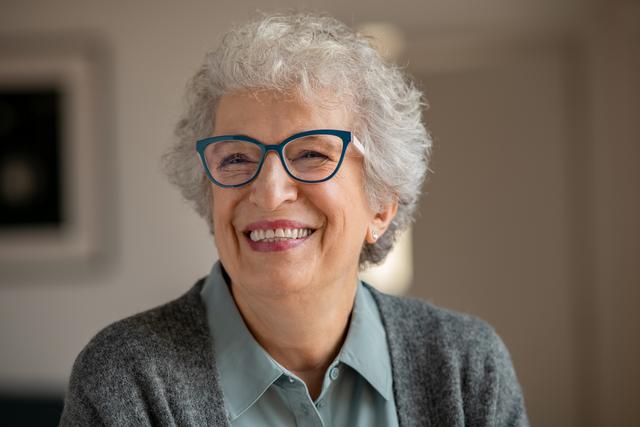Assisted Living
8 Things to Expect When Looking for Assisted Living
Assisted Living
8 Things to Expect When Looking for Assisted Living
Let's Begin!
Here are a few essential things you need to know before starting your search for an assisted living facility. There comes a time for most families when an aging parent or loved one needs to consider changing their living situation from home to senior living. However, most people will only do this a few times, so it is essential to know what finding the best-assisted residence for your family and loved one’s needs entails. Here are eight things to expect as you begin your search.
Start Early
- [ ] Being prepared for a change in living is essential. Finding a suitable facility can be rushed if you wait to look until you desperately need to make a change. Start your research early, know your options, and take the time to evaluate your loved one’s needs fully. Some families need additional time to plan for moving and downsizing. You can create your own assisted living timeline using the Purple Door Timeline tool.
Know Your Financial Position
- [ ] There are a lot of ways to afford assisted living. It is common for families and loved ones to use more than one source to support assisted living costs. You should know the Medicare, social security, pensions, long-term care coverage, cash savings, and other sources of income and support available to you. Our Financial Calculator is a helpful tool on our resources page for understanding your financial position. You can also explore Medicare/Medicaid’s assisted living coverage to assess better where you stand.
Expect a Lot of Paperwork
- [ ] Finding assisted living requires more than a lease application for a standard apartment. Several forms must be filled out, and the requirements vary by state, individual community, sources of payment or coverage, and level of care needed. There will be a lot of paperwork involved, so get organized with all documentation of your financial resources and medical information ahead of time.
Anticipate Waiting
- [ ] With an ever-increasing senior population and longer life expectancies, the demand for assisted living is high. It is not uncommon for assisted living communities to have waitlists. This is also why it is essential to start your search early. You do not want to find the perfect community only to wait months or years to move in.
Anticipate Resistance
- [ ] Aging parents and loved ones do not always agree on the best living options and decisions; family members can even disagree about what should be done. Clear communication between family members is essential; determining how decisions will be made early in the process can help. Check out Purple Door's guide to "Talking About Assisted Living." It is also essential to sympathize with your seniors and help them come to terms with moving into assisted living.
Tour! Tour! Tour!
- [ ] Plan on touring 3 to 5 communities in person. Communities do a great job telling you about their property, amenities, care options, and availability; however, you need to see the environment yourself. Doing so will give you a feel for the community and care levels available. You will feel confident in your decision regarding assisted living if you’ve personally seen what they offer. Take a look at our tools to take with you on your tours: Right Fit Community Worksheet and the Right Fit Tour Checklist
Do Your Due Diligence
- [ ] Research is essential, but so is bringing your concerns and the concerns of your aging loved one to the table. Ask questions on your tour. All inquiries should be addressed to your satisfaction. You can also conduct online searches with reviews, license verification, and official records with your state about the community. Most states make violations available to the public. These extra steps will make you more confident in your decision about assisted living.
The Future Looks Bright
- [ ] Assisted living provides the support aging people need, reducing stress on residents and their families. Communities often offer activities and classes that keep residents active and engaged with others. Recent research shows that social interaction improves mental health as seniors age and lessens the chance of Dementia (Better Health Channel). While the change in living can be challenging, once your loved one settles into assisted living, the quality of life improves.



 Conclusion
Conclusion

As you begin your search for assisted living, these eight tips will have you ready to take on the task of finding the best assisted living option for yourself or the aging person in your life. Keep your research diligent and keep the detailed points in mind. With help from this article, you can find a facility that is exactly what you need.
_________________________
This article is intended solely for informational purposes and should not be construed as medical, legal, or financial advice. It does not establish a professional relationship between Purple Door Finders and the user. For any personal matters or decision-making, it is strongly recommended to seek guidance from a qualified healthcare provider, attorney, or financial advisor. While links to third-party websites are provided for your convenience, please be aware that Purple Door Finders neither endorses nor assumes responsibility for the content of these external sites.
FAQ
What's the difference between independent living and assisted living?
Independent living is a community designed for older adults. The purpose is to enhance the social needs of the resident. Some independent communities even offer dining options and transportation. Assisted living is a community that provides care and assistance with the "Activities of Daily Living" (ADL's). It is licensed in their state as a "Residential Care Facility for the Elderly" (RCFE). Some communities offered independent living and assisted living as a continuum of care. Some residents choose this type of community so that when things change with their health, they can continue to live at the property and not have to move.
When is assisted living necessary?
As parents or loved ones age, they may not be the best steward of their health and safety. Start by speaking with other family members, caregivers, and the loved one's physician. Health and safety are the most important, and feedback from a doctor or licensed caregiver can give insights into the health concerns and safety issues. In addition, your ability to take some actions could depend on the state of physical and cognitive health and legal standing.
When to move your parent to assisted living?
The best scenario is finding a community and getting them settled into place before a health crisis arises. When an emergency happens, the decision needs to be made immediately, and the community of their choice may not have any availability. This could then possibly force your parent to move to a community that does not meet all of their needs in the long run. The goal should always be to get them in place for the continuum of care to avoid additional moves.
How much does medicare pay for assisted living?
Medicare does not typically pay for assisted living. Medicare is a health or medical insurance covering services in a clinical setting. Assisted living offers care in a home-like environment. If a physician indicates you require rehabilitation services or skilled nursing, Medicare will cover your stay for a defined duration. If your physician suggests you require hospice services, Medicare will cover your hospice care needs in your home or a facility you live in.
What is the difference between assisted living and senior living?
Senior Living is a community designed for older adults. The primary focus of senior living communities is to enhance the social needs of an independent resident. Communities that offer assisted living support those residents who need assistance with ADL's. Both types of communities encourage and allow residents to live as independently as possible.



